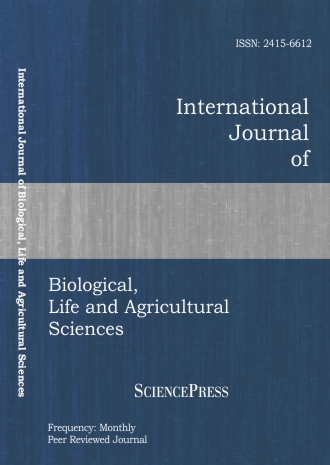
Scholarly
Volume:4, Issue: 8, 2010 Page No: 554 - 559
International Journal of Biological, Life and Agricultural Sciences
ISSN: 2415-6612
1234 Downloads
Survey of Impact of Production and Adoption of Nanocrops on Food Security
Perspective of food security in 21 century showed shortage of food that production is faced to vital problem. Food security strategy is applied longtime method to assess required food. Meanwhile, nanotechnology revolution changes the world face. Nanotechnology is adequate method utilize of its characteristics to decrease environmental problems and possible further access to food for small farmers. This article will show impact of production and adoption of nanocrops on food security. Population is researchers of agricultural research center of Esfahan province. The results of study show that there was a relationship between uses, conversion, distribution, and production of nanocrops, operative human resources, operative circumstance, and constrains of usage of nanocrops and food security. Multivariate regression analysis by enter model shows that operative circumstance, use, production and constrains of usage of nanocrops had positive impact on food security and they determine in four steps 20 percent of it.
Keywords:
References:
[1] Aerni, P, "takeholders attitudes towards risks and benefits of genetically